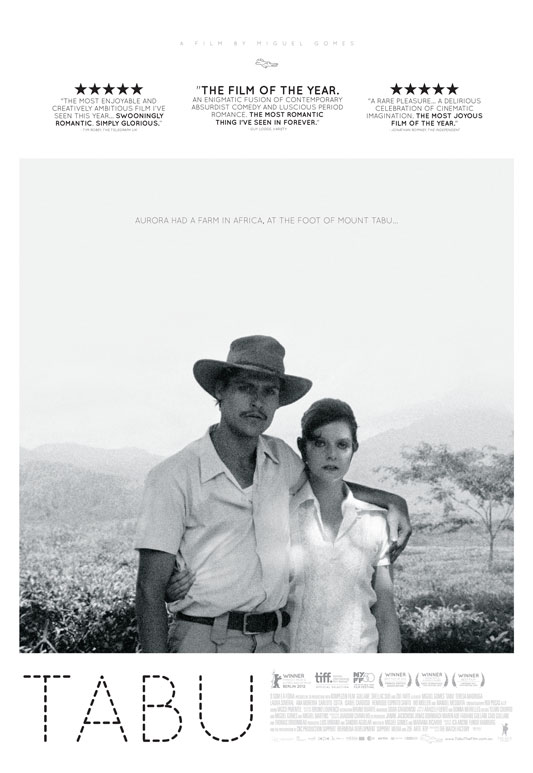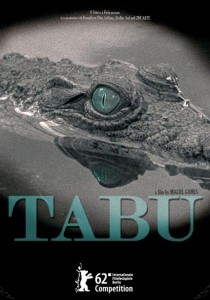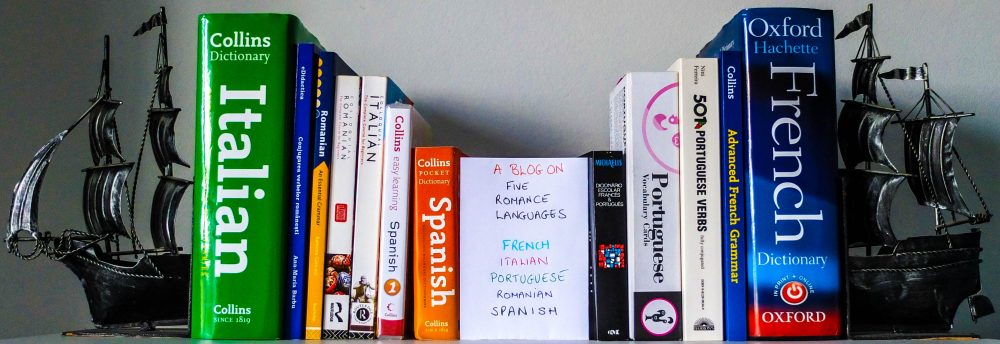 It’s not often that a Portuguese film gets a run in mainstream cinemas in Australia (well, mainstream arthouse cinemas), but Tabu has been going for a good month or two now, after getting consistently good reviews. The film is in three parts; there is a rather peculiar prologue, then “Paradise Lost”, an at times ponderous introduction to the main characters in their old age in Lisbon. But the third bit – called “Paradise” – is utterly absorbing.
It’s not often that a Portuguese film gets a run in mainstream cinemas in Australia (well, mainstream arthouse cinemas), but Tabu has been going for a good month or two now, after getting consistently good reviews. The film is in three parts; there is a rather peculiar prologue, then “Paradise Lost”, an at times ponderous introduction to the main characters in their old age in Lisbon. But the third bit – called “Paradise” – is utterly absorbing.
 It is set in Africa in the 1960s. The whole film was shot in black and white but the lighting is brilliant, as indeed is the use of sound or – cleverly – the lack of it. The scene where the lovers – played by Carloto Cotta and Ana Moreira (pictured above) – meet for the first time, for example, is shot in total silence. (They are with a group of mutual friends who are nattering away in the background but all that matters is the glances between the two main characters.) Not many actors can carry such a crucial scene using facial expressions alone, but these two do it brilliantly. You know instantly that they will become lovers, and that it will lead them into trouble. At other crucial times in the film the voices and noises of the humans are removed, but you can hear something in the background – the ominous cry of a bird, for example. Crocodiles, too, play an important symbolic role. Just don’t ask me what the symbolism is!
It is set in Africa in the 1960s. The whole film was shot in black and white but the lighting is brilliant, as indeed is the use of sound or – cleverly – the lack of it. The scene where the lovers – played by Carloto Cotta and Ana Moreira (pictured above) – meet for the first time, for example, is shot in total silence. (They are with a group of mutual friends who are nattering away in the background but all that matters is the glances between the two main characters.) Not many actors can carry such a crucial scene using facial expressions alone, but these two do it brilliantly. You know instantly that they will become lovers, and that it will lead them into trouble. At other crucial times in the film the voices and noises of the humans are removed, but you can hear something in the background – the ominous cry of a bird, for example. Crocodiles, too, play an important symbolic role. Just don’t ask me what the symbolism is!
Tabu was directed by Miguel Gomes, and won awards at the Berlin Film Festival last year. You can read an interview with Gomes and biographies of the actors here. It was filmed in Mozambique in the province of Zambezia (a place which is quite trendy at the moment – the children’s animated film Zambezia is now showing in Australia and other countries). It is called Tabu because much of the action takes place near a fictional Mount Tabu.
If you look closely at the film poster above, there is the quote, which is spoken by the narrator in the third part of the film
“Aurora had a farm in Africa, at the foot of Mount Tabu.”
That, surely, must be a reference to the opening sentence of Karen Blixen‘s memoir Out of Africa:
“I had a farm in Africa, at the foot of the Ngong Hills.”
For some reason, for me, that is one of the most memorable opening sentences to a novel. I like it for its factual simplicity. But I could be biased: I was born in Africa in the suburb of Karen (named after Karen Blixen) on the outskirts of Nairobi, and I can remember going for walks in the Ngong Hills as a kid. In fact, my parents had a painting of the Ngong Hills which used to hang on the wall of the lounge of the various houses we lived in. When I was last in Portugal I bought the Portuguese version of Karen Blixsen’s book, África Minha (My Africa), translated by Ana Falcão Bastos. The opening line in that book is rendered as
“Tive uma fazenda em África, no sopé das montanhas Ngongo.”
Out of Africa, I am sure most of you will know, was made into a film in 1985, starring Robert Redford and Meryl Streep. It won seven Oscars and as a result for a while Africa was en vogue. Everyone wanted to go on romantic safaris and have picnics and sip champagne while elephants and flamingoes roamed peacefully in the background as a glorious sun was setting.
Since Tabu is about forbidden love, I wondered if tabu was also the Portuguese word for taboo. It is. The French noun is tabou, the Spanish is tabú, the Italia is tabù, and the Romanian word is tabu. In the first four it is a masculine word, in Romanian it is neuter.
Anyway, I would certainly recommend Tabu to:
- Anyone who is learning or loves Portuguese;
- Anyone who is a student of film (if anything just to see how the rules can be broken);
- Anyone who lived in Africa or is interested in the history of the continent. Somehow, Africa has its own soundtrack, there is nothing like the sound of the African bush.
- Anyone who liked the 1960s (the music, hairstyles, fashion, etc).
But if all you like is fast-paced action movies, it is not for you!
For an analysis of the film and to see the trailer, follow the link here to a very popular Australian film review program called At The Movies, and there are links to more reviews below.
Related articles
- Film Review: Tabu (2012) (filmblerg.com)
- The 25 best films of 2012: 10 through 6 (somecamerunning.typepad.com)
- Direct address and Tabu (2012) (dustyroar.com)
- Climbing the Ngong’ Hills in Maasai Land (gurmitbhatia.com)
- The song I know of Africa (who doesn’t know one of me) (memoirsofahusk.com)
- Out Of Africa (myoldaddiction2.wordpress.com)
- Eight Surprising Words From Portuguese (wordnik.com)
- Exploring Karen in Nairobi, Kenya, with a Toddler and an Infant (gypsymomma.com)




Really interesting post. I had not heard of this film, but I will take a look to see if it will make it to the UK.
Good luck with the search. I am surprised it actually made it into Australian cinemas. Thanks for your feedback.
Hey, also hope it makes the UK …. makes me remember the movie nights we had before children!!!! We would choose a movie & the others in the club had to watch. I discovered many genres i thought i would never enjoy!
Thanks for the great review & a respark to see “art” movies!
xx
It took a year to come to Australia so it might have come and gone in the UK by now….